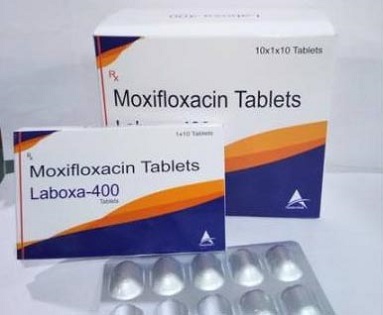Nikhil Prasad Fact checked by:Thailand Medical News Team Aug 09, 2024 8 months, 2 weeks, 1 day, 8 hours, 25 minutes ago
Sepsis News: New Study Highlights Immunomodulatory Effects of Moxifloxacin in Sepsis Management
Researchers from various institutions, including the Hospital de Santa Maria-Portugal, Instituto Gulbenkian de Ciência-Portugal, and Faculdade de Medicina da Universidade de Lisboa-Portugal, have uncovered promising results about moxifloxacin's ability to protect against severe sepsis.
 Moxifloxacin shows promise in protecting against severe sepsis
Moxifloxacin shows promise in protecting against severe sepsis
This
Sepsis News report highlights the findings of the study, detailing the significant protective effects of moxifloxacin beyond its known antimicrobial properties.
Understanding Sepsis
Sepsis is a life-threatening condition caused by the body's extreme response to an infection, leading to widespread inflammation, tissue damage, and organ failure. It is a major cause of mortality in intensive care units worldwide. Despite its prevalence, advancements in sepsis treatment have stagnated over the past decades, underscoring the need for new therapeutic strategies.
The Role of Moxifloxacin
Moxifloxacin, a fluoroquinolone antibiotic, has been widely used for its potent antibacterial activity. However, researchers have discovered that it also has significant immunomodulatory effects, which could be beneficial in managing sepsis. This study aimed to explore moxifloxacin's dual role in both fighting infection and modulating the immune response.
Key Findings from the Study
The study conducted various experiments to determine the effects of moxifloxacin on sepsis, including in vitro tests on THP-1 cells and in vivo tests on mice. Here are the key findings:
-Inhibition of Inflammatory Cytokines
In vitro experiments revealed that moxifloxacin significantly inhibits the secretion of pro-inflammatory cytokines such as TNF-α and IL-1β in immune cells stimulated with E. coli and LPS (lipopolysaccharide). This reduction in cytokine production suggests that moxifloxacin can modulate the inflammatory response that is characteristic of sepsis.
-Increased Survival Rates in Mice
In the in vivo studies, mice subjected to a severe sepsis model (cecal ligation and puncture or CLP) showed a significant increase in survival rates when treated with moxifloxacin. The survival rate of these mice increased by 80% compared to those treated with a placebo. This substantial improvement underscores the potential of moxifloxacin as a protective agent in severe sepsis cases.
-Reduction in Cytokine and Organ Damage Markers
Further analysis showed that moxifloxacin-treated mice had significantly lower levels of cytokines and markers of organ damage in their plasma. This indicates that moxifloxacin not only helps in reducing inflammation but also mitigates the damage to organs typically seen in severe sepsis.
&l
t;strong>-No DNA Damage Detected
One concern with some antibiotics is their potential to cause DNA damage. However, the study's comet assay results showed no significant DNA damage in cells treated with moxifloxacin, even at higher concentrations. This finding is crucial as it suggests that the beneficial effects of moxifloxacin in sepsis are not due to genotoxicity.
-Protection in ATM-Deficient Mice
To further validate the findings, the researchers tested moxifloxacin in ATM-deficient mice, which lack a critical gene involved in the DNA damage response. These mice also showed improved survival rates after sepsis induction, indicating that moxifloxacin's protective effects are independent of the DNA damage response pathway.
Discussion
The results of this study highlight the potential of moxifloxacin as a dual-purpose treatment for sepsis, leveraging both its antimicrobial properties and its ability to modulate the immune response. This discovery opens up new avenues for sepsis treatment, especially considering the limited progress in this field over the past few decades.
Conclusion
The study demonstrates that moxifloxacin significantly reduces the levels of inflammatory cytokines and markers of organ damage in sepsis. Moreover, its protective effects are not associated with DNA damage, suggesting a safe profile for its use in severe sepsis cases. These findings pave the way for further research into moxifloxacin's immunomodulatory mechanisms and its potential application in clinical settings.
The study findings were published in the peer-reviewed journal: Antibiotics.
https://www.mdpi.com/2079-6382/13/8/742
For the latest
Sepsis News, keep on logging to Thailand Medical News.
Read Also:
https://www.thailandmedical.news/news/phytochemicals-as-potential-saviors-against-covid-19-associated-sepsis
https://www.thailandmedical.news/news/reduced-plasma-bmp6-levels-in-sepsis-new-insights-into-iron-regulation
